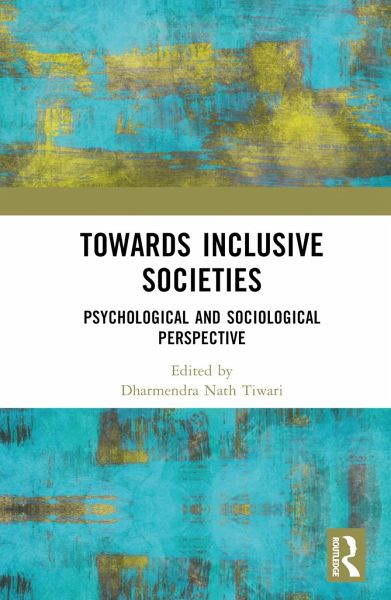
Towards Inclusive Societies
Psychological and Sociological Perspectives
Herausgegeben: Tiwari, Dharmendra Nath

PAYBACK Punkte
77 °P sammeln!
Towards Inclusive Societies: Psychological and Sociological Perspectives focuses on the importance of building inclusive societies and communities for global human welfare within psychological, social, political, and cultural realms. It discusses the engagement of psychology and other social science disciplines on the need for building both cultural sensitivity and interdisciplinary dialogue. The volume presents the issues and consequences of globalization and diversity in the social and psychological domains and their role in shaping the physical and mental health of people. It systematically...
Towards Inclusive Societies: Psychological and Sociological Perspectives focuses on the importance of building inclusive societies and communities for global human welfare within psychological, social, political, and cultural realms. It discusses the engagement of psychology and other social science disciplines on the need for building both cultural sensitivity and interdisciplinary dialogue. The volume presents the issues and consequences of globalization and diversity in the social and psychological domains and their role in shaping the physical and mental health of people. It systematically examines the various parameters of inclusivity such as equality, equity, social identity, social stigma, and coexistence of differences in socio-cultural behaviour. The volume focuses on the developments towards building inclusive societies in the South Asian countries including, India, Bangladesh, and Nepal. It also highlights the challenges and possibilities in making social-psychological discourses more inclusive. This book will be of interest to students, teachers, and scholars of psychology, cultural psychology, gender psychology, social psychology, sociology, and political science and social work. It will also be useful for psychologists, sociologists, social scientists, social workers, political scientists, and Gandhian philosophers.













